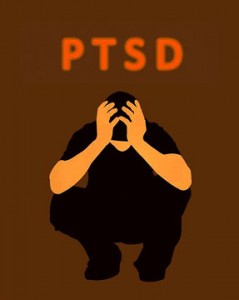 When it comes to the court room we are quite familiar with law suits over physical injuries like broken bones and bruises but are you aware of the many law suites occurring over mental pain as well? Law suits are filed every day on behalf of mental pain such as anguish, emotional distress, post-traumatic stress disorder, depression, and so on. But do these victims seeking mental compensation win battles within the court room just as well as those seeking compensation for physical pain do?
When it comes to the court room we are quite familiar with law suits over physical injuries like broken bones and bruises but are you aware of the many law suites occurring over mental pain as well? Law suits are filed every day on behalf of mental pain such as anguish, emotional distress, post-traumatic stress disorder, depression, and so on. But do these victims seeking mental compensation win battles within the court room just as well as those seeking compensation for physical pain do?
In a 2008 Texas case 17-year-old Laura Schubert sought compensation for injuries she suffered during an exorcism. Her injuries included physical- cuts and bruises and also mental- mental anguish, post-traumatic stress disorder, depression, and a suicide attempt. The court ruled in favor of compensation for her physical injuries but not for her mental pain. (1) But why? Is there a double standard? Does physical pain somehow trump mental pain?
Prove it. It certainly is not that mental pain is not comparable to physical pain. We certainly know that feelings of depression, loss, anger, etc. can hurt worse than a scrape or bruise at a times. The challenge is proving your mental pain within a court room. Unlike physical pain you cannot simply submit a photo of a marking on your arm for the jury to examine. Proving mental pain is far more challenging.
Jurors especially are apprehensive to leaning in the favor of mental pain compensation because there is the potential for deceivers to lie and profit from it. Not only do you have to prove it, but you have to make the jury believe your plea.
Make the connection. In order for a ruling to go in the favor of providing compensation for mental pain, the courtroom must first make the connection between physical and mental pain. Many of the uneducated public do not understand that physical health issues like diabetes can cause mental issues such as depression and anxiety, according to the American Psychological Association. (2) These connections are what will award you appropriate compensation.
While there may be a small double standard within the court room when it comes to physical pain vs. mental pain compensation, it’s our job to inform the public. By teaching the mass population about the pain experienced mentally after incidents and its connection to physical issues we can pave the way to a fairer courtroom, without the double standard for all.
Mark D. Parisi, Psy.D. & Associates, P.C. provides counseling, psychological testing, and psychotropic medication management in Mount Prospect and Chicago – serving surrounding Cook, Lake, DuPage, and Will Counties. They accept most insurance and offer extremely affordable sliding scale rates. Call (847) 909-9858 for a free, no-obligation telephone consultation.
###
Sources:
- Physical vs. Mental Pain: A Legal Double Standard?, Information on 2008 Texas case, 2009, http://www.apa.org/monitor/2009/02/jn.aspx
- Physical vs. Mental Pain: A Legal Double Standard?, Physical can cause mental, 2009, http://www.apa.org/monitor/2009/02/jn.aspx


 The average child between 8 and 18 years old spends about 7.5 hours per day in front of a screen (TV, computer, phone, etc.), according to the U.S. government (1). This is a very sad statistic that has many people worried about the activity level of our children. It is recommended that children have at least 60 minutes of activity per day, but that goal is not always reached.
The average child between 8 and 18 years old spends about 7.5 hours per day in front of a screen (TV, computer, phone, etc.), according to the U.S. government (1). This is a very sad statistic that has many people worried about the activity level of our children. It is recommended that children have at least 60 minutes of activity per day, but that goal is not always reached. Team sports have long been a popular activity for people of all ages. While some people play just for fun, there are many others who play at an extremely competitive level. No matter your reason, however, there are benefits and dangers of playing sports.
Team sports have long been a popular activity for people of all ages. While some people play just for fun, there are many others who play at an extremely competitive level. No matter your reason, however, there are benefits and dangers of playing sports. Obesity is defined as a condition marked by excess accumulation of body fat, according to the American Psychological Association (1) and it affects a great portion of our population. In fact, as stated by the Centers for Disease Control and Prevention (CDC), more than one-third or 78.6 million U.S. adults are obese.
Obesity is defined as a condition marked by excess accumulation of body fat, according to the American Psychological Association (1) and it affects a great portion of our population. In fact, as stated by the Centers for Disease Control and Prevention (CDC), more than one-third or 78.6 million U.S. adults are obese. PTSD, or post-traumatic stress disorder, is an anxiety problem that develops in some people after extremely traumatic events, such as combat, crime, an accident or natural disaster, according to the American Psychological Association. (1) PTSD is often acted out through nightmares, hypervigilance, flashbacks, anger, or depression and can often complicate close relationships like families.
PTSD, or post-traumatic stress disorder, is an anxiety problem that develops in some people after extremely traumatic events, such as combat, crime, an accident or natural disaster, according to the American Psychological Association. (1) PTSD is often acted out through nightmares, hypervigilance, flashbacks, anger, or depression and can often complicate close relationships like families. About one in 100 Americans are diagnosed with schizophrenia, a treatable serious mental illness that affects a person’s thoughts, feelings, mood, and overall functioning according to the American Psychological Association (APA). (1) With statistics like that, it’s a wonder why the mass public isn’t more educated about schizophrenia.
About one in 100 Americans are diagnosed with schizophrenia, a treatable serious mental illness that affects a person’s thoughts, feelings, mood, and overall functioning according to the American Psychological Association (APA). (1) With statistics like that, it’s a wonder why the mass public isn’t more educated about schizophrenia. Between televisions, video games, tablets, computers, and smartphones children today are bombarded with an overwhelming supply of screen technology but is all the screen time weighing too heavily on your child? In 2013 the average 8 to 10-year-old spent nearly 8 hours every day with a variety of different media, and teenagers spent eleven or more hours per day, according to the American Academy of Pediatrics (AAP).(1). Yikes!
Between televisions, video games, tablets, computers, and smartphones children today are bombarded with an overwhelming supply of screen technology but is all the screen time weighing too heavily on your child? In 2013 the average 8 to 10-year-old spent nearly 8 hours every day with a variety of different media, and teenagers spent eleven or more hours per day, according to the American Academy of Pediatrics (AAP).(1). Yikes! “Sleep is essential for health and well-being,” according to the American Psychological Association (APA). (1)Especially in your teenage years, the amount of sleep you receive each night is affecting you either positively or negatively. If you are someone who either doesn’t get quite enough sleep or more seriously- struggles with sleep deprivation, odds are you are reaping more of the negative effects.
“Sleep is essential for health and well-being,” according to the American Psychological Association (APA). (1)Especially in your teenage years, the amount of sleep you receive each night is affecting you either positively or negatively. If you are someone who either doesn’t get quite enough sleep or more seriously- struggles with sleep deprivation, odds are you are reaping more of the negative effects.
 Not only can constructive anger help an immediate relationship or situation, it can have positive effects on the future as well. Studies have shown the repressed anger is more likely to result in violence than immediately expressed anger (3). The following are a few of the positive aspects of anger.
Not only can constructive anger help an immediate relationship or situation, it can have positive effects on the future as well. Studies have shown the repressed anger is more likely to result in violence than immediately expressed anger (3). The following are a few of the positive aspects of anger. While many of us are familiar with ways to both control and cope with depression symptoms, you may be surprised to learn that research findings show we may also be able to help prevent them. According to the American Psychological Association (APA) psychologists Jane Gillham, Lisa Jaycox, Karen Reivich, and Martin Seligman all set out to prove just that (1).
While many of us are familiar with ways to both control and cope with depression symptoms, you may be surprised to learn that research findings show we may also be able to help prevent them. According to the American Psychological Association (APA) psychologists Jane Gillham, Lisa Jaycox, Karen Reivich, and Martin Seligman all set out to prove just that (1).